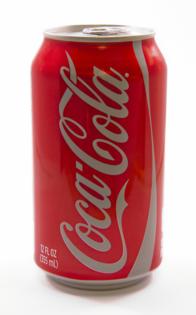On Nutrition: Sugar from zero to 50
Published in Nutrition
I just survived a grueling 24 hours existing on nothing but clear liquids — tea, broth, jello, apple juice and the like. It didn’t kill me but let’s just say the nourishment in these foods didn’t last long. My suffering body was thankful, however, for the small amount of energy derived from the little bit of sugar in some of these foods.
It got me thinking if the current panic to remove all sugar from our diets is justified. Let’s take a look.
Sugar is the energy produced by plants when exposed to sunlight. In nutrition terms, it is a carbohydrate — a compound of carbon, hydrogen and oxygen.
What we call table sugar is actually sucrose, a 50/50 combination of glucose (the sugar that feeds our brain, nerves and muscles) and fructose (the primary sugar in fruit, honey and agave syrup).
This sucrose is extracted from, you guessed it, plants. Everything from carrots to cantaloupe and pistachios contains varying amounts of fructose, glucose and sucrose. The two plants with the most sucrose, however, are sugar beets (a much larger cousin to the red garden beet) and sugar cane.
Sugar is a processed food in that it is extracted from these plants. Juice from sugar beets, for example, is separated from the rest of the plant. It is then cleaned to remove impurities and turned into syrup. This syrup turns into crystals of sugar, which is spinned in a centrifuge to remove any liquid (along with the byproduct, molasses). What’s left are dry sugar crystals we use in our kitchen.
In our bodies, sugar fuels the brain, muscles and nerves in the form of carbohydrate calories. Of course we get valuable carbohydrates from all types of foods including fruit, vegetables, milk, yogurt, potatoes, bread and other starches. In the end though, all of these carbs eventually break down to simple sugars to be used by every cell in the body.
Too many “added” sugars are what health experts say are bad for our health. This category includes table sugar, honey, molasses, pancake syrup and the like.
Depending on who you listen to, no more than 6% to 10% of our total daily calories should come in the form of added sugar. That’s about 30 to 50 grams (or 7 to 12 teaspoons) a day for most people.
Sound like a lot? Consider that one 12-ounce can of Coke supplies almost 40 grams (10 teaspoons) of added sugar. Mountain Dew? A whopping 77 grams (19 teaspoons) in a 20-ounce bottle. And energy drinks easily contain 50-60 grams (10 to 15 teaspoons) of added sugar per can or bottle.
So yes, we need to cut down on added sugar. But zero added sugar could be next to impossible, especially if you like birthday cake or syrup on your pancakes.
As with most things in life, I will stick by my grandfather’s sage advice. “Too much of anything is not good for you.”
©2025 MediaNews Group, Inc. Distributed by Tribune Content Agency, LLC.










Comments